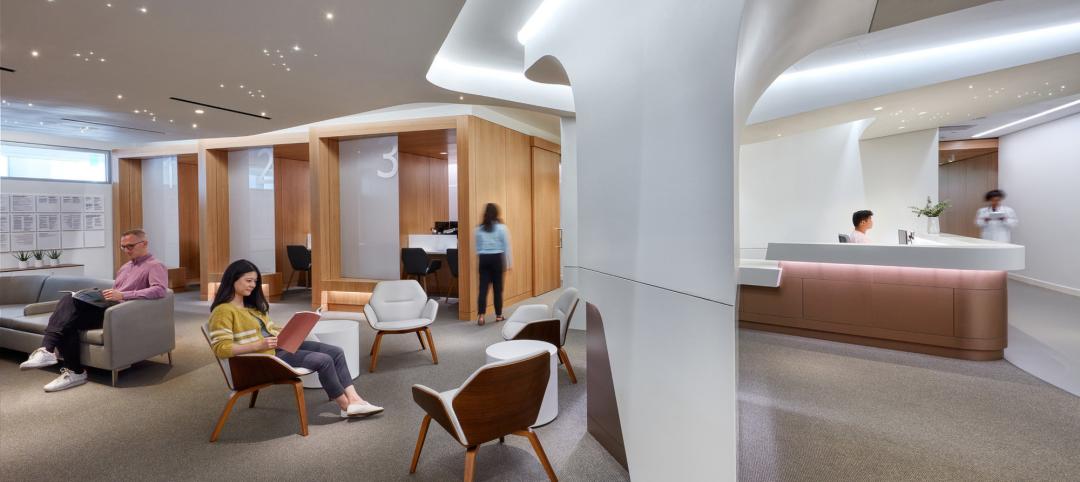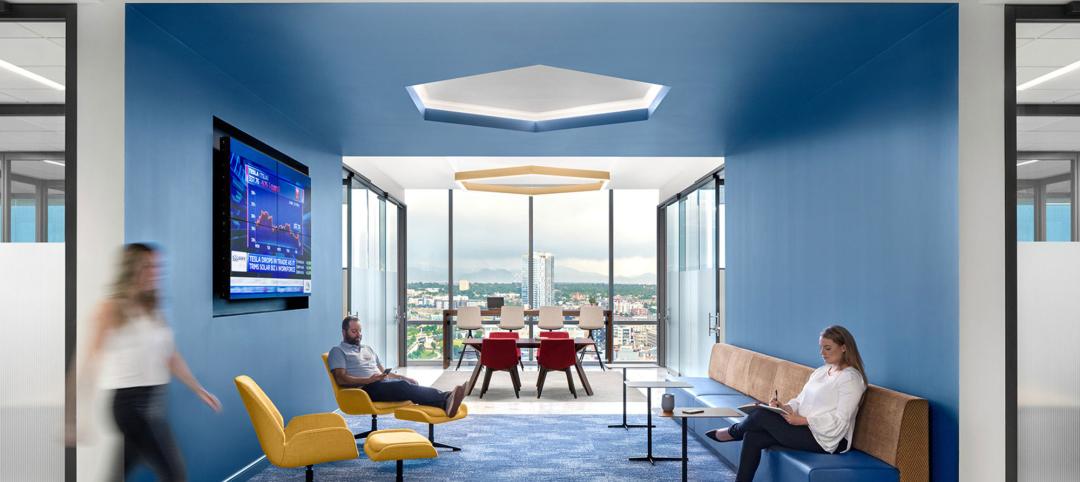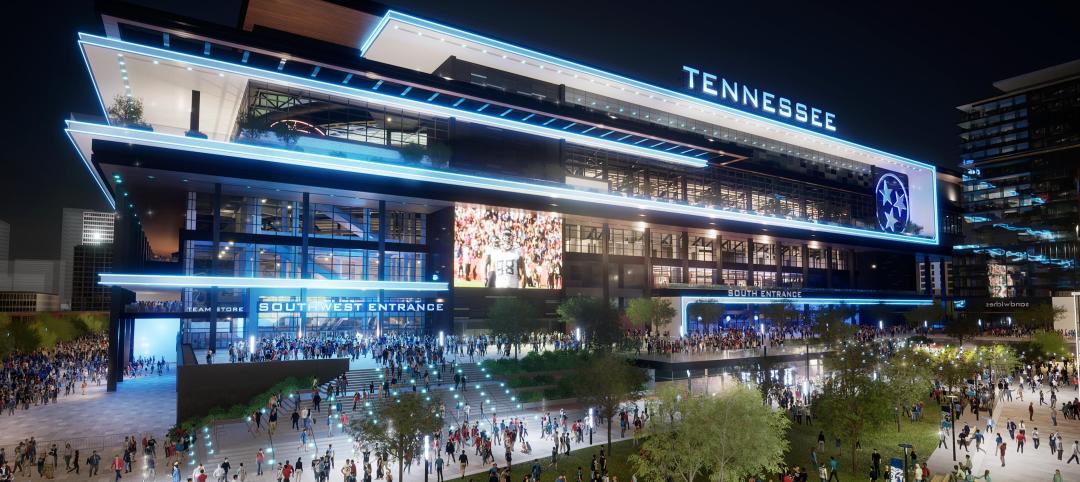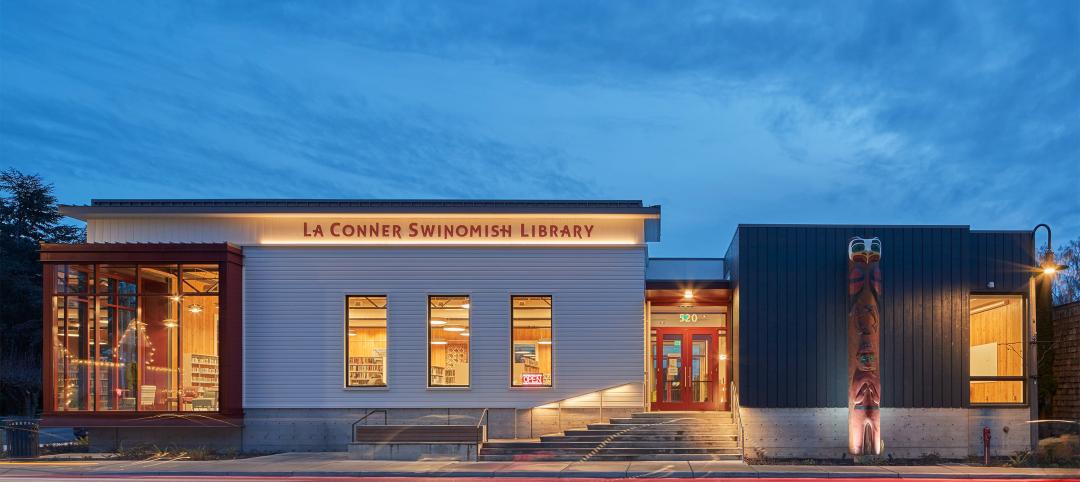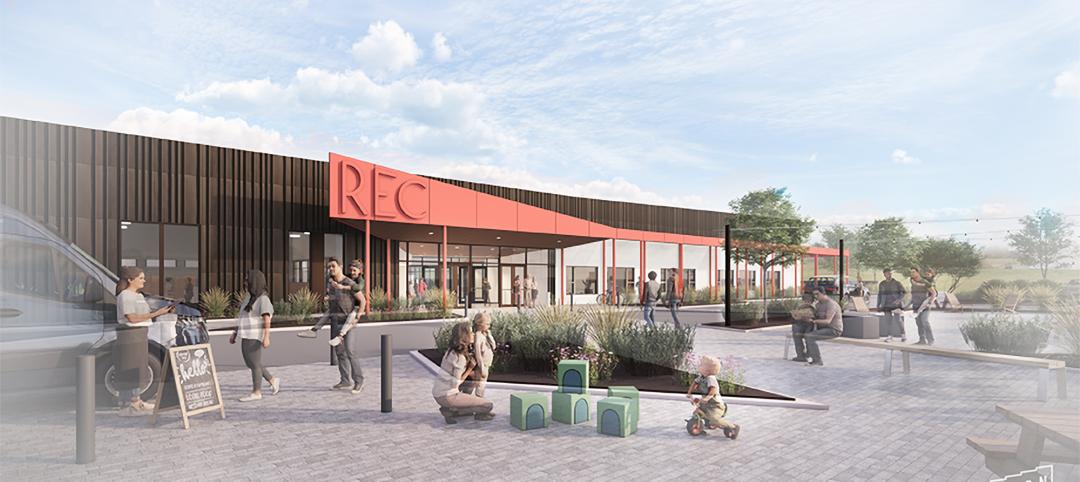Retail rentals and occupancy are finally on the rise after a long stretch in the doldrums, according to Jones Lang LaSalle Retail Group (www.BDCnetwork.com/JLLRetail). Progress is slow, and glamorous projects are still few and far between, at least in North America. But some prestige work has recently been done, such as the 100,000-sf CUBES development—created by Shawmut and Equity Office Properties to bring needed retail space to an underserved section of Manhattan.
Katie Sprague, Senior Vice President in the Los Angeles office of RTKL, pinpoints vertical shopping developments, open-air retail zones, “slow-food” dining, interactive retail, and development in emerging markets as worldwide trends (http://bit.ly/13j8L9B). In particular, merchants are adding convenience features, including scan-it-yourself technologies, touch-screen kiosks, and hand-held checkout devices for store staff.
MJ Munsell, IIDA, Principal and Retail Market Design Leader at MulvannyG2, says consumers’ use of apps such as Pinterest is shaping ideas about personal branding; perhaps dressing room lighting, color schemes, and sound will become customizable at the touch of a screen.
TOP RETAIL ARCHITECTURE FIRMS
Company 2012 Retail Revenue ($)1 Callison $99,528,7412 Stantec $89,657,8783 Gensler $88,360,0004 MulvannyG2 Architecture $70,792,7505 RTKL Associates $61,225,0006 RSP Architects $39,327,0007 WD Partners $37,000,0008 MBH Architects $34,095,0009 Perkowitz+Ruth Architects $23,729,54710 Little $20,411,914
TOP RETAIL ENGINEERING FIRMS
Company 2012 Retail Revenue ($)1 Jacobs Engineering Group $146,400,0002 AECOM Technology Corp. $118,220,0003 Henderson Engineers $44,677,2994 URS Corp. $41,152,2405 Parsons Brinckerhoff $19,100,0006 Wiss, Janney, Elstner Associates $17,310,0007 Bergmann Associates $13,000,0008 Wallace Engineering $9,250,0009 Buro Happold Consulting Engineers $7,176,00010 Arup $6,574,122
TOP RETAIL CONSTRUCTION FIRMS
Company 2012 Retail Revenue ($)1 Shawmut Design and Construction $314,900,0002 Whiting-Turner Contracting Co., The $307,373,1823 PCL Construction Enterprises $216,819,4944 Lend Lease $214,921,0005 Turner Corporation, The $201,890,0006 EMJ $200,300,0007 Power Construction $116,000,0008 Weitz Co., The $115,314,2169 Structure Tone $105,052,00010 Ryan Companies US $103,001,644
Figuring out how to deal with competition from online stores is a pressing concern for traditional retailers and the AEC firms that serve them. “We’re going to see a big rethinking of how retailers do their distribution,” predicts Omid Nabipoor, President of Interface Engineering. “Amazon has announced that they’re going to do more food and grocery distribution, and has a lot of grocers considering how they’re going to compete with that. How will they deal with distribution? How will they deliver in a day, as Amazon is promising?” Retail facility upgrades may be one response; development of new models for distribution centers may be another.
Some retailers are creating space for entertainment or classes to make the store a more compelling destination—always a popular tactic in home centers but now increasingly common in grocery, sporting goods, and tech stores. Chain restaurants represent another bright spot in the sector, with pent-up demand attributable to prior expansion delays, according to Thomas Goemaat, President/CEO of Shawmut. “Based on our backlog, we expect this trend to continue for the foreseeable future,” he says.
Read full 2013 Giants 300 Report
Related Stories
Healthcare Facilities | Sep 8, 2023
Modern healthcare interiors: Healing and care from the outside in
CO Architects shares design tips for healthcare interiors, from front desk to patient rooms.
Designers | Sep 5, 2023
Optimizing interior design for human health
Page Southerland Page demonstrates how interior design influences our mood, mental health, and physical comfort.
K-12 Schools | Sep 5, 2023
CHPS launches program to develop best practices for K-12 school modernizations
The non-profit Collaborative for High Performance Schools (CHPS) recently launched an effort to develop industry-backed best practices for school modernization projects. The Minor Renovations Program aims to fill a void of guiding criteria for school districts to use to ensure improvements meet a high-performance threshold.
Market Data | Sep 5, 2023
Nonresidential construction spending increased 0.1% in July 2023
National nonresidential construction spending grew 0.1% in July, according to an Associated Builders and Contractors analysis of data published today by the U.S. Census Bureau. On a seasonally adjusted annualized basis, nonresidential spending totaled $1.08 trillion and is up 16.5% year over year.
Sports and Recreational Facilities | Sep 1, 2023
New Tennessee Titans stadium conceived to maximize types of events that can be hosted
The new Tennessee Titans stadium was conceived to maximize the number and type of events that the facility can host. In addition to serving as the home of the NFL’s Titans, the facility will be a venue for numerous other sporting, entertainment, and civic events. The 1.7-million sf, 60,000-seat, fully enclosed stadium will be built on the east side of the current stadium campus.
Mass Timber | Sep 1, 2023
Community-driven library project brings CLT to La Conner, Wash.
The project, designed by Seattle-based architecture firm BuildingWork, was conceived with the history and culture of the local Swinomish Indian Tribal Community in mind.
Office Buildings | Aug 31, 2023
About 11% of U.S. office buildings could be suitable for green office-to-residential conversions
A National Bureau of Economic Research working paper from researchers at New York University and Columbia Business School indicates that about 11% of U.S. office buildings may be suitable for conversion to green multifamily properties.
Adaptive Reuse | Aug 31, 2023
New York City creates team to accelerate office-to-residential conversions
New York City has a new Office Conversion Accelerator Team that provides a single point of contact within city government to help speed adaptive reuse projects. Projects that create 50 or more housing units from office buildings are eligible for this new program.
Codes and Standards | Aug 31, 2023
Community-led effort aims to prevent flooding in Chicago metro region
RainReady Calumet Corridor project favors solutions that use natural and low-impact projects such as rain gardens, bioswales, natural detention basins, green alleys, and permeable pavers, to reduce the risk of damaging floods.
Adaptive Reuse | Aug 31, 2023
Small town takes over big box
GBBN associate Claire Shafer, AIA, breaks down the firm's recreational adaptive reuse project for a small Indiana town.



